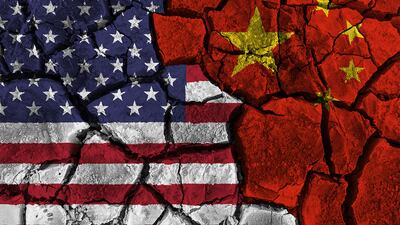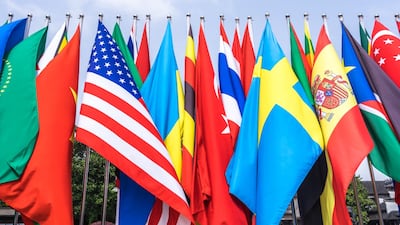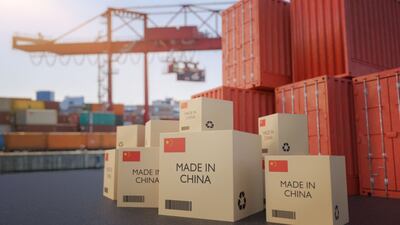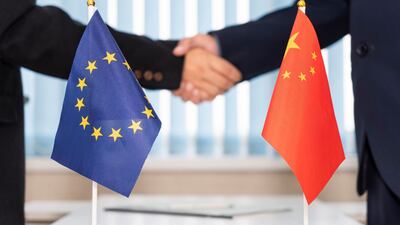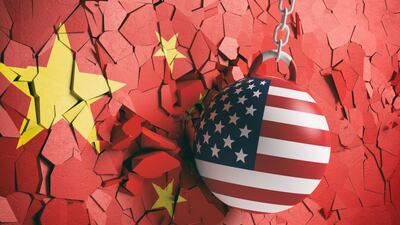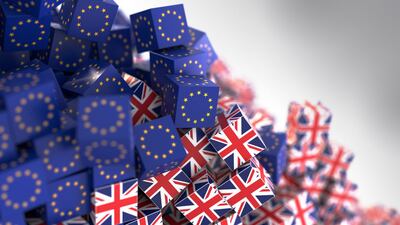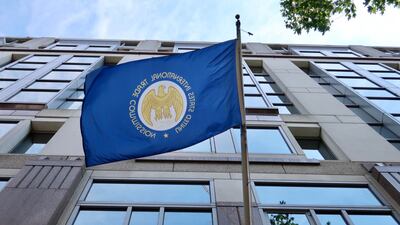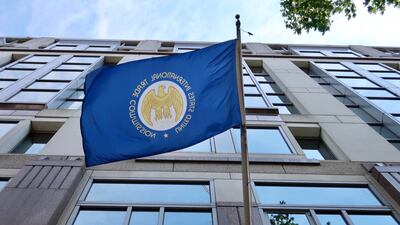Trade Policy
While the National Electrical Manufacturers Association supports the Biden Administration’s plan to impose tariffs on a range of Chinese goods coming into the US, it also supports holding off on their implantation.
With the sheen of inevitability now scuffed off the BIOSECURE Act, diplomatic efforts to reduce US dependence on Chinese APIs are increasing in prominence. And the power of the legislation itself could be determined by litigation about a video app.
The FDA commissioner said that supply chains will remain interconnected no matter how much nationalism dominates the political landscape, meaning international cooperation will still be necessary.
A new round of tariffs imposed by the Biden administration on various Chinese goods, including medical devices, points to a broader shift in US strategy for strengthening supply chains and ensuring Americans have reliable access to safe products, according to analysts who spoke to Medtech Insight about the tariffs. While fueled by the pandemic, the momentum pushing this change in trade policy has been growing for some time.
BIO CEO John Crowley sat down with Pink Sheet at the industry’s annual convention to discuss his vision for a newly restructured BIO, his thoughts on the upcoming US elections and whether he’d ever lead another biotech.
Former and incumbent regulatory officials from China and the European Union highlighted the need for supportive regulatory policies for the innovative drug sector at the recent DIA China annual meeting.
Pink Sheet editors and reporter consider the implications of the BIOSECURE Act as it advances through a House committee, whether industry would improve clinical trial diversity with tougher enforcement of the regulation, as some have suggested, and the FDA’s use of platform technology ideas for gene therapies not participating in the program.
Medical products imported from China are among a broad range of items that will be subject to higher tariffs under new federal guidelines. The plan will raise tariffs on some forms of personal protective equipment (PPE) to 25%; additionally, tariffs on syringes and needles will be set at 50%.
The BioIndustry Association has welcomed a decision to delay the deadline for compliance with new regulations on the classification of imported materials used in drug production, but says the border rules are still not proportionate for life science products.
The United Nations treaty on plastics pollution, considered ‘the most important climate deal since Paris,’ stands to have a direct impact on the cosmetics industry, potentially by targeting intentionally added nano-plastics in addition to microplastics in cosmetics, says attorney Melissa Kopolow, who spoke at the Personal Care Products Council’s annual meeting in Miami on 27 February.
Intellectual property conflicts, vague terminology, and excessive health data transfer requirements are among the problems with the proposed European Health Data Space highlighted in a new position paper by DIGITALEUROPE.
Companies wanting to use the new accelerated procedure will be paying more than £68,000 for the privilege, and will have to inform the UK medicines agency of any divergent decisions by reference regulators.
OTC medicines manufacturers operating in Great Britain or Northern Ireland must add a “UK only” label to outer packaging to prevent their OTC products being exported into any part of the European Union. This new packaging artwork can be submitted to the MHRA anytime from now but must be submitted prior to 31 December 2024, advises Jenson R+.
US International Trade Commission found patents had mixed effect on consumer access to diagnostics and therapeutics during COVID-19 pandemic. Trade group AdvaMed says findings demonstrate patent waiver programs aren’t needed for COVID-19 diagnostics.
A new report from the US International Trade Commission found that patents had a mixed effect on access to diagnostics and therapeutics during the COVID-19 pandemic. Trade group AdvaMed says the findings demonstrate that patent waiver programs aren’t needed for COVID-19 diagnostics.
Under its new International Recognition Procedure, approval by one of the MHRA's seven “reference regulators” – including the US FDA – as an OTC medicine does not necessarily mean the same status will be granted in post-Brexit UK, warns regulatory consultancy JensonR+.
In comments on FDA draft guidance released in August, industry members raise questions about the agency’s capacity to deal with an anticipated flood of facility registrations and product listings. Confidentiality and international trade also figure among concerns.
Ninth Circuit overturns federal district court jury’s verdict dismissing Global Master Corp.’s complaint alleging Esmond Natural violated RICO Act by providing supplements of lower strength or otherwise different from products Global Master agreed to buy in US and distribute in China.
Supreme Court finds presumption against extraterritorial reach of US laws, saying Congress never “affirmatively and unmistakably instructed” Lanham Act provisions apply to foreign conduct. Brands are known soon after launch in countries where they’re not marketed and some businesses likely see opportunities.
Number of regulators formally agreeing to work toward creating Latin American regulator is growing.
ADVERTISEMENT

